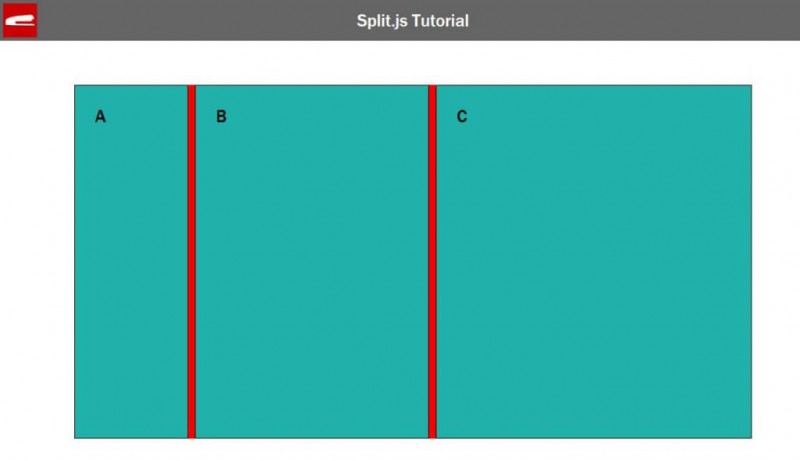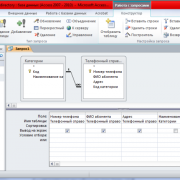String.toupper метод
Содержание:
- Примеры
- ToLower(Char, CultureInfo)
- ToLower(Char)
- RemarksRemarks
- オーバーロード
- ToLower(CultureInfo)
- ToLower()
- Комментарии
- Convert a String to Lower Case using Boost Library
- Creating a new string after case conversion
- JavaScript
- Convert a String to Lower Case using STL
- type Replacer ¶
- func FieldsFunc ¶
- Overloads
- ToLower(CultureInfo)
- func SplitN ¶
- type Builder ¶ 1.10
- type Reader ¶
- func Split ¶
Примеры
В следующем примере демонстрируется ToLower .The following example demonstrates ToLower.
ToLower(Char, CultureInfo)
Преобразует значение указанного символа Юникода в его эквивалент в нижнем регистре, используя указанные сведения о форматировании, связанные с языком и региональными параметрами.Converts the value of a specified Unicode character to its lowercase equivalent using specified culture-specific formatting information.
-
c
- Char
Знак Юникода, который необходимо преобразовать.The Unicode character to convert.
-
culture
- CultureInfo
Объект, задающий правила определения регистра для языка и региональных параметров.An object that supplies culture-specific casing rules.
Возвращаемое значение
- Char
Эквивалент в нижнем регистре, измененный согласно , или значение без изменений, если уже является буквой нижнего регистра или не является буквой алфавита.The lowercase equivalent of , modified according to , or the unchanged value of , if is already lowercase or not alphabetic.
Исключения
ArgumentNullException
имеет значение . is .
Комментарии
Используйте String.ToLower для преобразования строки в нижний регистр.Use String.ToLower to convert a string to lowercase.
ToLower(Char)
Преобразует значение символа Юникода в его эквивалент в нижнем регистре.Converts the value of a Unicode character to its lowercase equivalent.
-
c
- Char
Знак Юникода, который необходимо преобразовать.The Unicode character to convert.
Возвращаемое значение
- Char
Эквивалент в нижнем регистре или значение без изменений, если уже является буквой нижнего регистра или не является буквой алфавита.The lowercase equivalent of , or the unchanged value of , if is already lowercase or not alphabetic.
Комментарии
Правила учета регистра берутся из текущего языка и региональных параметров.Casing rules are obtained from the current culture.
Используйте String.ToLower для преобразования строки в нижний регистр.Use String.ToLower to convert a string to lowercase.
Примечания для тех, кто вызывает этот метод
Как описано в рекомендациях по использованию строк, рекомендуется избегать вызова методов с регистром символов и строкового регистра, которые заменяют значения по умолчанию.As explained in Best Practices for Using Strings, we recommend that you avoid calling character-casing and string-casing methods that substitute default values. Вместо этого следует вызывать методы, для которых требуется явно указать параметры.Instead, you should call methods that require parameters to be explicitly specified. Чтобы преобразовать символ в нижний регистр с помощью соглашений о регистре текущего языка и региональных параметров, вызовите перегрузку метода со значением для его параметра.To convert a character to lowercase by using the casing conventions of the current culture, call the method overload with a value of for its parameter.
RemarksRemarks
Каждая из этих подпрограмм преобразует указанную прописную букву в строчную, если это возможно и уместно.Each of these routines converts a given uppercase letter to a lowercase letter if it is possible and relevant. Преобразование регистра товловер зависит от языкового стандарта.The case conversion of towlower is locale-specific. Изменяются только символы, соответствующие текущему языковому стандарту.Only the characters relevant to the current locale are changed in case. Функции без суффикса _l используют текущую национальную настройку.The functions without the _l suffix use the currently set locale. Версии этих функций с суффиксом _l принимают языковой стандарт в качестве параметра и используют его вместо текущего языкового стандарта.The versions of these functions that have the _l suffix take the locale as a parameter and use that instead of the currently set locale. Для получения дополнительной информации см. Locale.For more information, see Locale.
Чтобы _tolower придать ожидаемые результаты, __isascii и Upper должны возвращать ненулевое значение.In order for _tolower to give the expected results, __isascii and isupper must both return nonzero.
По умолчанию глобальное состояние этой функции ограничивается приложением.By default, this function’s global state is scoped to the application. Чтобы изменить это, см. раздел глобальное состояние в CRT.To change this, see Global state in the CRT.
Универсальное текстовое сопоставление функцийGeneric-Text Routine Mappings
| Подпрограмма TCHAR.HTCHAR.H routine | _UNICODE и _MBCS не определены_UNICODE & _MBCS not defined | _MBCS определено_MBCS defined | _UNICODE определено_UNICODE defined |
|---|---|---|---|
| _totlower_totlower | ToLowertolower | _mbctolower_mbctolower | towlowertowlower |
| _totlower_l_totlower_l | _tolower_l_tolower_l | _mbctolower_l_mbctolower_l | _towlower_l_towlower_l |
Примечание
_tolower_l и _towlower_l не имеют зависимости от языкового стандарта и не предназначены для непосредственного вызова._tolower_l and _towlower_l have no locale dependence and are not meant to be called directly. Они предоставляются для внутреннего использования _totlower_l.They are provided for internal use by _totlower_l.
オーバーロード
|
指定されたカルチャの大文字と小文字の規則を使用して、この文字列のコピーを小文字に変換して返します。Returns a copy of this string converted to lowercase, using the casing rules of the specified culture. |
|
|
この文字列のコピーを小文字に変換して返します。Returns a copy of this string converted to lowercase. |
ToLower(CultureInfo)
指定されたカルチャの大文字と小文字の規則を使用して、この文字列のコピーを小文字に変換して返します。Returns a copy of this string converted to lowercase, using the casing rules of the specified culture.
-
culture
- CultureInfo
カルチャ固有の大文字と小文字の規則を提供するオブジェクト。An object that supplies culture-specific casing rules.
戻り値
- String
現在の文字列を小文字にしたもの。The lowercase equivalent of the current string.
ArgumentNullException
が です。 is .
次の例では、大文字の2つの文字列を、英語 (米国) とトルコ語 (トルコ) のカルチャを使用して小文字に変換し、その後、小文字の文字列を比較します。The following example converts two strings of uppercase characters to lowercase characters using the English-United States and Turkish-Turkey cultures, then compares the lowercase strings. 大文字の文字列は同じですが、1つの文字列に Unicode ラテン大文字 I が出現するたびに、もう一方の文字列には上記のドット付きのラテン大文字 I が含まれている点が異なります。The uppercase strings are identical except that for each occurrence of the Unicode LATIN CAPITAL LETTER I in one string, the other string contains LATIN CAPITAL LETTER I WITH DOT ABOVE.
注釈
パラメーターで指定されたカルチャの大文字と小文字の規則によって、 文字列の大文字と小文字の変更方法が決まります。The casing rules of the culture specified by the parameter determine the way the case of the string is changed.
注意
このメソッドは、現在のインスタンスの値を変更しません。This method does not modify the value of the current instance. 代わりに、現在のインスタンス内のすべての文字が小文字に変換される新しい文字列が返されます。Instead, it returns a new string in which all characters in the current instance are converted to lowercase.
セキュリティの考慮事項Security Considerations
メソッドに CultureInfo 以外のオブジェクトを渡すと CultureInfo.InvariantCulture 、大文字と小文字の操作によってカルチャ固有の規則が考慮されます。If you pass the method a CultureInfo object other than CultureInfo.InvariantCulture, the casing operation will take culture-specific rules into account. ファイル名、名前付きパイプ、レジストリキーなど、オペレーティングシステム識別子の小文字または大文字のバージョンが必要な場合は、 ToLowerInvariant メソッドまたはメソッドを使用し ToUpperInvariant ます。If you need the lowercase or uppercase version of an operating system identifier, such as a file name, named pipe, or registry key, use the ToLowerInvariant or ToUpperInvariant method. これにより、すべてのカルチャで同じ結果が生成され、より効率的に実行されます。This produces the same result in every culture and performs more efficiently.
- CultureInfo
ToLower()
この文字列のコピーを小文字に変換して返します。Returns a copy of this string converted to lowercase.
戻り値
- String
小文字の文字列。A string in lowercase.
注釈
このメソッドは、現在のカルチャの大文字と小文字の規則を考慮します。This method takes into account the casing rules of the current culture.
注意
このメソッドは、現在のインスタンスの値を変更しません。This method does not modify the value of the current instance. 代わりに、現在のインスタンス内のすべての文字が小文字に変換される新しい文字列が返されます。Instead, it returns a new string in which all characters in the current instance are converted to lowercase.
セキュリティの考慮事項Security Considerations
メソッドを呼び出した結果として得られる大文字と小文字の演算では、 現在のカルチャの大文字と小文字の表記規則が考慮されます。The casing operation that results from calling the method takes the casing conventions of the current culture into account. ファイル名、名前付きパイプ、レジストリキーなど、オペレーティングシステム識別子の小文字または大文字のバージョンが必要な場合は、 ToLowerInvariant メソッドまたはメソッドを使用し ToUpperInvariant ます。If you need the lowercase or uppercase version of an operating system identifier, such as a file name, named pipe, or registry key, use the ToLowerInvariant or ToUpperInvariant methods. これにより、(メソッドとは異なり) すべてのカルチャで同じ結果が生成され、 より効率的に実行されます。This produces the same result in every culture (unlike the method) and performs more efficiently.
注意 (呼び出し元)
「 文字列を使用するためのベストプラクティス」で説明されているように、既定値を置き換える文字列の大文字と小文字の使い分けメソッドを呼び出さずに、パラメーターを明示的に指定する必要があるメソッドを呼び出すことをお勧めします。As explained in Best Practices for Using Strings, we recommend that you avoid calling string casing methods that substitute default values and instead call methods that require parameters to be explicitly specified. 現在のカルチャの大文字と小文字の表記規則を使用して文字を小文字に変換するには、 パラメーターの値を指定してメソッドオーバーロードを呼び出し ます。To convert a character to lowercase by using the casing conventions of the current culture, call the method overload with a value of for its parameter.
Комментарии
Инвариантная культура представляет язык и региональные параметры, не учитывающие язык и региональные параметры.The invariant culture represents a culture that is culture-insensitive. Он связан с английским языком, но не с определенной страной или регионом.It is associated with the English language but not with a specific country or region. Дополнительные сведения см. в описании свойства CultureInfo.InvariantCulture.For more information, see the CultureInfo.InvariantCulture property.
Если приложение зависит от регистра строки, изменяющейся предсказуемым способом, который не влияет на текущий язык и региональные параметры, используйте ToLowerInvariant метод.If your application depends on the case of a string changing in a predictable way that is unaffected by the current culture, use the ToLowerInvariant method. ToLowerInvariantМетод эквивалентен .The ToLowerInvariant method is equivalent to . Метод рекомендуется использовать, когда коллекция строк должна находиться в прогнозируемом порядке в элементе управления пользовательского интерфейса.The method is recommended when a collection of strings must appear in a predictable order in a user interface control.
Примечание
Этот метод не изменяет значение текущего экземпляра.This method does not modify the value of the current instance. Вместо этого возвращается новая строка, в которой все символы в текущем экземпляре преобразуются в нижний регистр.Instead, it returns a new string in which all characters in the current instance are converted to lowercase.
Вопросы безопасностиSecurity Considerations
Если требуется версия идентификатора операционной системы в нижнем регистре или в верхнем регистре, например имя файла, именованный канал или раздел реестра, используйте ToLowerInvariant ToUpperInvariant методы или.If you need the lowercase or uppercase version of an operating system identifier, such as a file name, named pipe, or registry key, use the ToLowerInvariant or ToUpperInvariant methods.
Convert a String to Lower Case using Boost Library
Boost String Algorithm Library provides a function Boost::to_lower() that can convert a complete string or a sequence to upper case i.e.
// convert string to back to lower case boost::to_lower(data);
#include <iostream>
#include <string>
#include <boost/algorithm/string.hpp>
int main() {
std::string data = "boost library is simple.";
// convert string to upper case
boost::to_upper(data);
std::cout << "In Upper case : " << data << std::endl;
// convert string to back to lower case
boost::to_lower(data);
std::cout << "In Lower case : " << data << std::endl;
}
Output:
In Upper case : BOOST LIBRARY IS SIMPLE. In Lower case : boost library is simple.
Creating a new string after case conversion
boost:to_upper() & boost::to_lower() converts the case of passed string. Whereas, many times we don’t want to modify the original string, we want to create a new string with converted case. For that boost provides to other function that creates a copy of passed string, then converts the case of new string and returns it. i.e.
boost::to_upper_copy() boost::to_lower_copy()
#include <iostream>
#include <string>
#include <boost/algorithm/string.hpp>
int main() {
std::string data = "boost library is simple.";
// convert a new string in upper case
std::string newData = boost::to_upper_copy(data);
std::cout << "Old Data = " << data << std::endl;
std::cout << "New Data = " << newData << std::endl;
}
Output:
Old Data = boost library is simple. New Data = BOOST LIBRARY IS SIMPLE.
JavaScript
JS Array
concat()
constructor
copyWithin()
entries()
every()
fill()
filter()
find()
findIndex()
forEach()
from()
includes()
indexOf()
isArray()
join()
keys()
length
lastIndexOf()
map()
pop()
prototype
push()
reduce()
reduceRight()
reverse()
shift()
slice()
some()
sort()
splice()
toString()
unshift()
valueOf()
JS Boolean
constructor
prototype
toString()
valueOf()
JS Classes
constructor()
extends
static
super
JS Date
constructor
getDate()
getDay()
getFullYear()
getHours()
getMilliseconds()
getMinutes()
getMonth()
getSeconds()
getTime()
getTimezoneOffset()
getUTCDate()
getUTCDay()
getUTCFullYear()
getUTCHours()
getUTCMilliseconds()
getUTCMinutes()
getUTCMonth()
getUTCSeconds()
now()
parse()
prototype
setDate()
setFullYear()
setHours()
setMilliseconds()
setMinutes()
setMonth()
setSeconds()
setTime()
setUTCDate()
setUTCFullYear()
setUTCHours()
setUTCMilliseconds()
setUTCMinutes()
setUTCMonth()
setUTCSeconds()
toDateString()
toISOString()
toJSON()
toLocaleDateString()
toLocaleTimeString()
toLocaleString()
toString()
toTimeString()
toUTCString()
UTC()
valueOf()
JS Error
name
message
JS Global
decodeURI()
decodeURIComponent()
encodeURI()
encodeURIComponent()
escape()
eval()
Infinity
isFinite()
isNaN()
NaN
Number()
parseFloat()
parseInt()
String()
undefined
unescape()
JS JSON
parse()
stringify()
JS Math
abs()
acos()
acosh()
asin()
asinh()
atan()
atan2()
atanh()
cbrt()
ceil()
cos()
cosh()
E
exp()
floor()
LN2
LN10
log()
LOG2E
LOG10E
max()
min()
PI
pow()
random()
round()
sin()
sqrt()
SQRT1_2
SQRT2
tan()
tanh()
trunc()
JS Number
constructor
isFinite()
isInteger()
isNaN()
isSafeInteger()
MAX_VALUE
MIN_VALUE
NEGATIVE_INFINITY
NaN
POSITIVE_INFINITY
prototype
toExponential()
toFixed()
toLocaleString()
toPrecision()
toString()
valueOf()
JS OperatorsJS RegExp
constructor
compile()
exec()
g
global
i
ignoreCase
lastIndex
m
multiline
n+
n*
n?
n{X}
n{X,Y}
n{X,}
n$
^n
?=n
?!n
source
test()
toString()
(x|y)
.
\w
\W
\d
\D
\s
\S
\b
\B
\0
\n
\f
\r
\t
\v
\xxx
\xdd
\uxxxx
JS Statements
break
class
continue
debugger
do…while
for
for…in
for…of
function
if…else
return
switch
throw
try…catch
var
while
JS String
charAt()
charCodeAt()
concat()
constructor
endsWith()
fromCharCode()
includes()
indexOf()
lastIndexOf()
length
localeCompare()
match()
prototype
repeat()
replace()
search()
slice()
split()
startsWith()
substr()
substring()
toLocaleLowerCase()
toLocaleUpperCase()
toLowerCase()
toString()
toUpperCase()
trim()
valueOf()
Convert a String to Lower Case using STL
C++ provides a function ::tolower() that converts a character to lower case character i.e.
int tolower ( int c );
std::string data = "THIS IS A SAMPLE STRING.";
// convert string to back to lower case
std::for_each(data.begin(), data.end(), [](char & c){
c = ::tolower(c);
});
#include <iostream>
#include <string>
#include <algorithm>
int main() {
std::string data = "This is a sample string.";
// convert string to upper case
std::for_each(data.begin(), data.end(), [](char & c) {
c = ::toupper(c);
});
std::cout << "In Upper Case : " << data << std::endl;
// convert string to back to lower case
std::for_each(data.begin(), data.end(), [](char & c) {
c = ::tolower(c);
});
std::cout << "In Lower Case : " << data << std::endl;
}
Output:
In Upper Case : THIS IS A SAMPLE STRING. In Lower Case : this is a sample string.
Issue with ::toupper() & ::tolower() is that they converts a single character at a time. To convert the case of a complete string we need to write extra code with these. Whereas, Boost String Algorithm Library provides a direct api that can be used to convert the case of a string i.e.
type Replacer ¶
Replacer replaces a list of strings with replacements.
It is safe for concurrent use by multiple goroutines.
type Replacer struct {
}
func
func NewReplacer(oldnew ...) *
NewReplacer returns a new Replacer from a list of old, new string
pairs. Replacements are performed in the order they appear in the
target string, without overlapping matches. The old string
comparisons are done in argument order.
NewReplacer panics if given an odd number of arguments.
▹ Example
▾ Example
package main
import (
«fmt»
«strings»
)
func main() {
r := strings.NewReplacer(«<«, «<», «>», «>»)
fmt.Println(r.Replace(«This is <b>HTML</b>!»))
}
This is <b>HTML</b>!
Run
Format
func (r *) Replace(s )
Replace returns a copy of s with all replacements performed.
func FieldsFunc ¶
func FieldsFunc(s , f func() ) []
FieldsFunc splits the string s at each run of Unicode code points c satisfying f(c)
and returns an array of slices of s. If all code points in s satisfy f(c) or the
string is empty, an empty slice is returned.
FieldsFunc makes no guarantees about the order in which it calls f(c)
and assumes that f always returns the same value for a given c.
▹ Example
▾ Example
package main
import (
«fmt»
«strings»
«unicode»
)
func main() {
f := func(c rune) bool {
return !unicode.IsLetter(c) && !unicode.IsNumber(c)
}
fmt.Printf(«Fields are: %q», strings.FieldsFunc(» foo1;bar2,baz3…», f))
}
Fields are:
Run
Format
Overloads
|
Returns a copy of this string converted to lowercase, using the casing rules of the specified culture. |
|
|
Returns a copy of this string converted to lowercase. |
ToLower(CultureInfo)
Returns a copy of this string converted to lowercase, using the casing rules of the specified culture.
-
culture
- CultureInfo
An object that supplies culture-specific casing rules.
Returns
- String
The lowercase equivalent of the current string.
Exceptions
ArgumentNullException
is .
The following example converts two strings of uppercase characters to lowercase characters using the English-United States and Turkish-Turkey cultures, then compares the lowercase strings. The uppercase strings are identical except that for each occurrence of the Unicode LATIN CAPITAL LETTER I in one string, the other string contains LATIN CAPITAL LETTER I WITH DOT ABOVE.
Remarks
The casing rules of the culture specified by the parameter determine the way the case of the string is changed.
Note
This method does not modify the value of the current instance. Instead, it returns a new string in which all characters in the current instance are converted to lowercase.
Security Considerations
If you pass the method a CultureInfo object other than CultureInfo.InvariantCulture, the casing operation will take culture-specific rules into account. If you need the lowercase or uppercase version of an operating system identifier, such as a file name, named pipe, or registry key, use the ToLowerInvariant or ToUpperInvariant method. This produces the same result in every culture and performs more efficiently.
- CultureInfo
Returns a copy of this string converted to lowercase.
Returns
- String
A string in lowercase.
Remarks
This method takes into account the casing rules of the current culture.
Note
This method does not modify the value of the current instance. Instead, it returns a new string in which all characters in the current instance are converted to lowercase.
Security Considerations
The casing operation that results from calling the method takes the casing conventions of the current culture into account. If you need the lowercase or uppercase version of an operating system identifier, such as a file name, named pipe, or registry key, use the ToLowerInvariant or ToUpperInvariant methods. This produces the same result in every culture (unlike the method) and performs more efficiently.
Notes to Callers
As explained in Best Practices for Using Strings, we recommend that you avoid calling string casing methods that substitute default values and instead call methods that require parameters to be explicitly specified. To convert a character to lowercase by using the casing conventions of the current culture, call the method overload with a value of for its parameter.
func SplitN ¶
func SplitN(s, sep , n ) []
SplitN slices s into substrings separated by sep and returns a slice of
the substrings between those separators.
The count determines the number of substrings to return:
n > 0: at most n substrings; the last substring will be the unsplit remainder. n == 0: the result is nil (zero substrings) n < 0: all substrings
Edge cases for s and sep (for example, empty strings) are handled
as described in the documentation for Split.
▹ Example
▾ Example
package main
import (
«fmt»
«strings»
)
func main() {
fmt.Printf(«%q\n», strings.SplitN(«a,b,c», «,», 2))
z := strings.SplitN(«a,b,c», «,», 0)
fmt.Printf(«%q (nil = %v)\n», z, z == nil)
}
[] (nil = true)
Run
Format
type Builder ¶ 1.10
A Builder is used to efficiently build a string using Write methods.
It minimizes memory copying. The zero value is ready to use.
Do not copy a non-zero Builder.
type Builder struct {
}
▹ Example
▾ Example
package main
import (
«fmt»
«strings»
)
func main() {
var b strings.Builder
for i := 3; i >= 1; i— {
fmt.Fprintf(&b, «%d…», i)
}
b.WriteString(«ignition»)
fmt.Println(b.String())
}
3...2...1...ignition
Run
Format
func (*Builder)
1.12
func (b *) Cap()
Cap returns the capacity of the builder’s underlying byte slice. It is the
total space allocated for the string being built and includes any bytes
already written.
func (*Builder)
1.10
func (b *) Grow(n )
Grow grows b’s capacity, if necessary, to guarantee space for
another n bytes. After Grow(n), at least n bytes can be written to b
without another allocation. If n is negative, Grow panics.
func (*Builder)
1.10
func (b *) Len()
Len returns the number of accumulated bytes; b.Len() == len(b.String()).
func (*Builder)
1.10
func (b *) Reset()
Reset resets the Builder to be empty.
func (*Builder)
1.10
func (b *) String()
String returns the accumulated string.
func (*Builder)
1.10
func (b *) Write(p []) (, )
Write appends the contents of p to b’s buffer.
Write always returns len(p), nil.
func (*Builder)
1.10
func (b *) WriteByte(c )
WriteByte appends the byte c to b’s buffer.
The returned error is always nil.
func (*Builder)
1.10
func (b *) WriteRune(r ) (, )
WriteRune appends the UTF-8 encoding of Unicode code point r to b’s buffer.
It returns the length of r and a nil error.
func (*Builder)
1.10
func (b *) WriteString(s ) (, )
WriteString appends the contents of s to b’s buffer.
It returns the length of s and a nil error.
type Reader ¶
A Reader implements the io.Reader, io.ReaderAt, io.Seeker, io.WriterTo,
io.ByteScanner, and io.RuneScanner interfaces by reading
from a string.
The zero value for Reader operates like a Reader of an empty string.
type Reader struct {
}
func
func NewReader(s ) *
NewReader returns a new Reader reading from s.
It is similar to bytes.NewBufferString but more efficient and read-only.
func (r *) Len()
Len returns the number of bytes of the unread portion of the
string.
func (r *) Read(b []) (n , err )
func (r *) ReadAt(b [], off ) (n , err )
func (r *) ReadByte() (, )
func (r *) ReadRune() (ch , size , err )
func (r *) Reset(s )
Reset resets the Reader to be reading from s.
func (r *) Seek(offset , whence ) (, )
Seek implements the io.Seeker interface.
func (r *) Size()
Size returns the original length of the underlying string.
Size is the number of bytes available for reading via ReadAt.
The returned value is always the same and is not affected by calls
to any other method.
func (r *) UnreadByte()
func Split ¶
func Split(s, sep ) []
Split slices s into all substrings separated by sep and returns a slice of
the substrings between those separators.
If s does not contain sep and sep is not empty, Split returns a
slice of length 1 whose only element is s.
If sep is empty, Split splits after each UTF-8 sequence. If both s
and sep are empty, Split returns an empty slice.
It is equivalent to SplitN with a count of -1.
▹ Example
▾ Example
package main
import (
«fmt»
«strings»
)
func main() {
fmt.Printf(«%q\n», strings.Split(«a,b,c», «,»))
fmt.Printf(«%q\n», strings.Split(«a man a plan a canal panama», «a «))
fmt.Printf(«%q\n», strings.Split(» xyz «, «»))
fmt.Printf(«%q\n», strings.Split(«», «Bernardo O’Higgins»))
}
Run
Format










